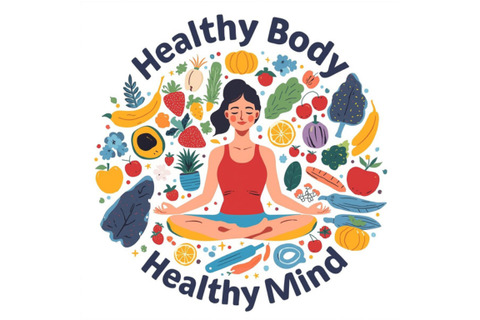
Understanding the Gut and Energy Connection
Your gut is home to trillions of bacteria that help break down food, create certain vitamins and support your immune system. These bacteria also influence how your body absorbs nutrients which is an important factor in energy production. Recent studies suggest that when your gut bacteria are out of balance your body struggles to make and use energy in an efficient way. This can leave you feeling tired even when you think you ate well or slept enough.
Your gut also communicates with your brain through the gut brain axis which acts like a chat line between the two. When the gut is inflamed or irritated it can send stress signals that affect your mood and focus. Understanding this connection helps you see why everyday habits play such a big role in energy levels.
How Food Choices Influence Gut Health
Everything you eat becomes fuel for either beneficial bacteria or less helpful bacteria. A diet filled with colorful fruits, vegetables and whole foods tends to feed the good bacteria that support energy production. Highly processed foods do the opposite. They often encourage the growth of bacteria that create inflammation and discomfort.
If you feel sluggish after certain meals it may not be your imagination. Many experts believe that a gut irritated by poor food choices can trigger energy dips soon after eating. This happens because your body is working harder to manage inflammation and poor digestion which leaves you feeling worn out.
The Role of Fiber in Sustained Energy
Fiber is one of the most important nutrients for gut health and many people do not get enough of it. Fiber works like a gentle brush that keeps your digestive system running smoothly. It also provides fuel for beneficial bacteria which helps them thrive.
When your gut bacteria are well fed your body absorbs nutrients more effectively which supports steady energy throughout the day. Low fiber diets often lead to constipation, bloating and unstable energy levels because the gut is forced to work harder than necessary.
Probiotics and Prebiotics for a Healthier Gut
Probiotics are living bacteria that support a balanced gut environment. You can find them naturally in foods like yogurt, kefir, kimchi and sauerkraut. Prebiotics are the food that probiotics need to thrive. These come from foods like bananas, onions, leeks and oats.
Many experts believe that adding both probiotics and prebiotics to your diet can create a more stable gut environment. This reduces inflammation and supports better digestion which helps your body maintain energy. If you constantly feel tired after meals it may be worth observing how often you include probiotic rich foods in your diet.
Stress and Its Impact on Gut Function
Stress does not stay in your mind. It affects your entire body including your gut. When you are stressed your digestive system can slow down or speed up which leads to discomfort. Stress can also change the balance of good and bad bacteria in the gut. This creates a cycle where poor gut health increases tiredness which then makes stress harder to manage.
Practicing simple stress management techniques like deep breathing or taking short breaks throughout the day can help support gut function and energy.
Common Myths About Gut Health and Energy
There are plenty of myths surrounding gut health. One common myth is that you need expensive supplements to feel better. In reality most people can improve their gut health with simple food and lifestyle changes. Another myth is that gut issues always cause obvious symptoms. Many people with imbalances experience silent symptoms like low energy, foggy thinking or poor mood without noticeable digestive discomfort.
Understanding these myths helps you focus on real steps rather than quick fixes.
The Negatives of Ignoring Gut Health
When gut health is consistently ignored problems often build slowly. You might notice more days when you feel tired for no clear reason. You may rely more on caffeine or sugar just to get through the afternoon. Ignoring gut health can also lead to more bloating, irregular digestion and difficulty concentrating. Over time these issues begin to affect your quality of life and your motivation.
Paying attention to gut health now helps prevent bigger problems later and supports long term energy that feels natural rather than forced.
Frequently Asked Questions
1.Can gut problems cause tiredness even if I sleep well?
Yes. When your gut is inflamed or unbalanced your body works harder to digest food and manage stress signals which can make you feel tired even after a full night of sleep.
2.Do I need supplements to improve gut health?
Not necessarily. Many people benefit from natural food sources like yogurt, oats, berries and vegetables. Supplements can help in some cases but they are not always required.
3.Why do certain meals make me feel sleepy?
Meals high in processed ingredients or heavy fats can slow digestion and increase inflammation which can leave you feeling tired soon after eating.
4.How long does it take to improve gut health?
Most people notice small improvements within a few weeks of changing their diet and lifestyle although full results can take longer depending on individual habits.
When you think about feeling tired you probably look straight at your sleep habits or your workload. What many people forget is that your gut plays a bigger role in your daily energy than you might expect. Your digestive system might seem like a simple food processor but it has a direct connection to your brain, your mood and your energy levels. That is why the idea of improving gut health has become such an important topic in wellness conversations. When you explore how better gut health can boost your daily energy you start to understand that your body works like one connected team rather than separate players.
If you have ever had a day when you woke up ready to conquer your to do list only to crash by mid afternoon your gut might be part of the story. This introduction will help you understand why this connection matters and how your digestive system influences your energy more than you realize. As you move through this article you will learn how to support your gut in simple realistic ways that fit into your daily routine. By the end you will have practical steps you can start using today to help your body feel more energized and balanced.
Understanding the Gut and Energy Connection
Your gut is home to trillions of bacteria that help break down food, create certain vitamins and support your immune system. These bacteria also influence how your body absorbs nutrients which is an important factor in energy production. Recent studies suggest that when your gut bacteria are out of balance your body struggles to make and use energy in an efficient way. This can leave you feeling tired even when you think you ate well or slept enough.
Your gut also communicates with your brain through the gut brain axis which acts like a chat line between the two. When the gut is inflamed or irritated it can send stress signals that affect your mood and focus. Understanding this connection helps you see why everyday habits play such a big role in energy levels.
How Food Choices Influence Gut Health
Everything you eat becomes fuel for either beneficial bacteria or less helpful bacteria. A diet filled with colorful fruits, vegetables and whole foods tends to feed the good bacteria that support energy production. Highly processed foods do the opposite. They often encourage the growth of bacteria that create inflammation and discomfort.
If you feel sluggish after certain meals it may not be your imagination. Many experts believe that a gut irritated by poor food choices can trigger energy dips soon after eating. This happens because your body is working harder to manage inflammation and poor digestion which leaves you feeling worn out.
The Role of Fiber in Sustained Energy
Fiber is one of the most important nutrients for gut health and many people do not get enough of it. Fiber works like a gentle brush that keeps your digestive system running smoothly. It also provides fuel for beneficial bacteria which helps them thrive.
When your gut bacteria are well fed your body absorbs nutrients more effectively which supports steady energy throughout the day. Low fiber diets often lead to constipation, bloating and unstable energy levels because the gut is forced to work harder than necessary.
Probiotics and Prebiotics for a Healthier Gut
Probiotics are living bacteria that support a balanced gut environment. You can find them naturally in foods like yogurt, kefir, kimchi and sauerkraut. Prebiotics are the food that probiotics need to thrive. These come from foods like bananas, onions, leeks and oats.
Many experts believe that adding both probiotics and prebiotics to your diet can create a more stable gut environment. This reduces inflammation and supports better digestion which helps your body maintain energy. If you constantly feel tired after meals it may be worth observing how often you include probiotic rich foods in your diet.
Stress and Its Impact on Gut Function
Stress does not stay in your mind. It affects your entire body including your gut. When you are stressed your digestive system can slow down or speed up which leads to discomfort. Stress can also change the balance of good and bad bacteria in the gut. This creates a cycle where poor gut health increases tiredness which then makes stress harder to manage.
Practicing simple stress management techniques like deep breathing or taking short breaks throughout the day can help support gut function and energy.
Common Myths About Gut Health and Energy
There are plenty of myths surrounding gut health. One common myth is that you need expensive supplements to feel better. In reality most people can improve their gut health with simple food and lifestyle changes. Another myth is that gut issues always cause obvious symptoms. Many people with imbalances experience silent symptoms like low energy, foggy thinking or poor mood without noticeable digestive discomfort.
Understanding these myths helps you focus on real steps rather than quick fixes.
The Negatives of Ignoring Gut Health
When gut health is consistently ignored problems often build slowly. You might notice more days when you feel tired for no clear reason. You may rely more on caffeine or sugar just to get through the afternoon. Ignoring gut health can also lead to more bloating, irregular digestion and difficulty concentrating. Over time these issues begin to affect your quality of life and your motivation.
Paying attention to gut health now helps prevent bigger problems later and supports long term energy that feels natural rather than forced.
Frequently Asked Questions
1.Can gut problems cause tiredness even if I sleep well?
Yes. When your gut is inflamed or unbalanced your body works harder to digest food and manage stress signals which can make you feel tired even after a full night of sleep.
2.Do I need supplements to improve gut health?
Not necessarily. Many people benefit from natural food sources like yogurt, oats, berries and vegetables. Supplements can help in some cases but they are not always required.
3.Why do certain meals make me feel sleepy?
Meals high in processed ingredients or heavy fats can slow digestion and increase inflammation which can leave you feeling tired soon after eating.
4.How long does it take to improve gut health?
Most people notice small improvements within a few weeks of changing their diet and lifestyle although full results can take longer depending on individual habits.

Conclusion
Improving gut health is one of the most effective ways to support steady energy throughout the day. When you understand how better gut health can boost your daily energy you begin to see that your body relies on a balanced digestive system to absorb nutrients, manage stress and maintain clear communication with the brain. Simple adjustments like eating more fiber, adding probiotic rich foods and staying mindful of stress can create a stronger and more stable gut environment.
Taking care of your gut is not about strict rules or unrealistic routines. It is about understanding how your body works and giving it what it needs to function at its best. When your gut feels balanced your energy becomes more reliable and your overall well being improves. With consistent habits and small daily changes you can support a healthier gut which leads to a better and more energized day.
Related posts




